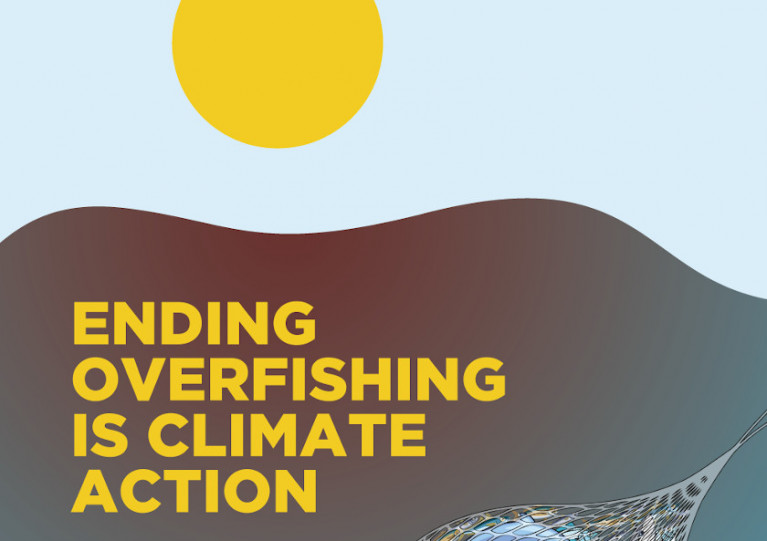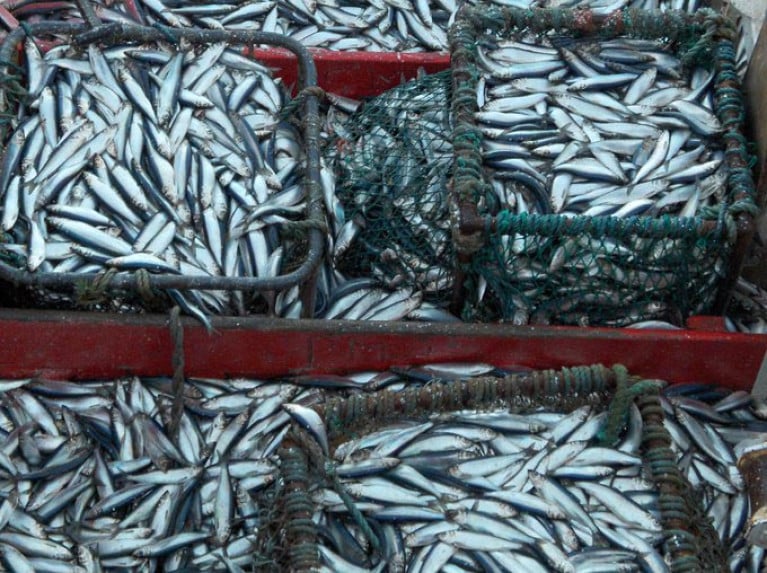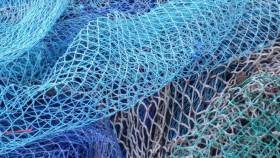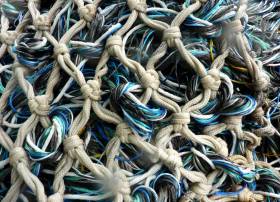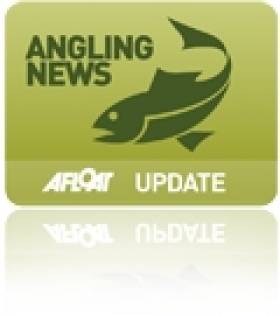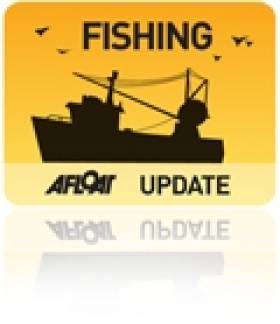Displaying items by tag: overfishing
Disappointment Over European Court Ruling on Overfishing Case
The EU’s most senior court has stopped short of applying overfishing rules across all EU fish stocks in a case taken by Friends of the Irish Environment (FIE) and environmental lawyers Client Earth.
The EU’s Court of Justice has ruled that EU ministers will be breaking the law if they approve overfishing of target stocks, but the court did not apply the ruling to bycatch stocks.
The case was filed by the two organisations after the EU missed its 2020 legal deadline to end overfishing.
The organisations claimed that EU ministers set fishing limits “far above undisputed scientific advice” in the north-east Atlantic that year.
The case was taken before the High Court in Ireland and referred on to Europe.
In a statement, ClientEarth marine wildlife and habitats lawyer Arthur Meeus said that “our seas are in a dire state – continuing to exploit them at levels that will eventually leave both fishers and coastal communities without fish to catch and the marine environment in jeopardy cannot go unchallenged”.
“Today’s ruling provides clarity – going forward, approving overfishing for target stocks is illegal,”Meeus said.
“However, it’s disappointing that the court did not follow the Advocate General’s opinion and has not confirmed that the obligation to end overfishing applies equally to bycatch stocks,”he said.
He was referring to an acceptance by the EU court’s senior advisor, the Advocate General, last year with the points argued in the legal challenge.
“It’s disheartening that the court failed to view the ocean as a whole and to apply the 2020 overfishing deadline across all stocks,”Meeus said.
“The ocean doesn’t think about fish in terms of stocks – making the distinction between them is arbitrary and fails to view the ocean as one living and breathing ecosystem.”
FIE director Tony Lowes said that “we would stand by Advocate General Ms Ćapeta in her opinion on this case last summer”.
“She wrote that ‘by setting a fixed deadline, the EU legislature aimed at excluding short-term socioeconomic pressures from overriding the achievement of long-term sustainability goals after 2020,” he said.
“The EU legislature dealt with this in a way similar to the ‘no more chocolate from Monday’ promise because, if Monday is not understood as a fixed deadline, one will keep eating chocolate, and Monday will never come,”Lowes said.
“We will be closely following the EU fishing limits that ministers set, going forward,” Meeus said.
“We will continue to take action as long as leaders violate ecosystems and their own promises,” he said.
FIE was represented by FP Logue solicitors John Kenny BL and James Devlin SC.
Irish Actor Jessie Buckley Among Celebrities Photographed Naked With Fish To Highlight Overfishing
Global celebrities, including Irish actor Jessie Buckley, have been photographed naked with fish as part of an NGO campaign against overfishing.
The photographs form an exhibition outside the European Parliament until the end of this week.
The campaign by NGOs Fishlove and Our Fish calls on EU Commissioner for Environment, Oceans and Fisheries Virginijus Sinkevičius and all EU governments to “finish the job of ending overfishing and deliver a just transition to low-impact and low-carbon fishing for the EU fishing fleet”.
The participants include Jean-Marc Barr (FR/US), Greta Scacchi (IT/AU), Helena Bonham Carter (UK), Gillian Anderson (UK/US), Judi Dench (UK), Sean Penn (US) and Vicky Krieps (LU/DE),
There are also images of the late Rutger Hauer (NL), Mélanie Bernier (FR), Nicolas Bro (DK), Jessie Buckley (IRL), Tom Wlaschiha (DE), Benja Bruijning (NL), Melanie Laurent (FR), Nina Hoss (DE), Giovanni Soldini (IT), Caroline Ducey (FR), Soenil Bahadoer (NL), Natalie Madueno (ES/DK), Emma Thompson (UK).
 Nicolas Bro with a Baltic Cod
Nicolas Bro with a Baltic Cod
Buckley is photographed with a sturgeon, while Gillian Anderson is photographed with an eel.
"In my Fishlove portrait, I dance with a dead 75kg mako shark,”Jean-Marc Barr, French-American film actor and director, says.
“It is a Dance of Death. But in dancing with one dead fish, I hope to have made people realise that all species of shark are in danger,” he said in a statement released by the NGOs.
“. Sharks will disappear from our planet if overfishing doesn't stop. I hope my image will one day be called a Dance of Life, in a future when we will have changed our ways and saved our oceans and all the creatures that live in them,” Barr said.
 Helena Bonham Carter
Helena Bonham Carter
Joint founder of the NGO Fishlove, Italian-Australian actress Greta Scacchi, said the campaign “came about because we wanted to draw public attention to the way overfishing is destroying our oceans”.
“Since I had my portrait taken naked with a fish in 2009, Fishlove has become an ever-growing visual petition of actors and artists who want to put a stop to the over-exploitation of our seas,” she said.
”The portraits are an attempt to remind us of the interdependence that exists between ourselves and the sea creatures that we are often more comfortable thinking of as alien, Scacchi added.
“The images demand our attention. They demand an answer from our politicians as to why overfishing is still happening when everyone now knows it is bringing the marine ecosystem to the verge of collapse,” she said.
She is due to attend a gala event, where Commissioner Sinkevičius and MEP Ska Keller are also due, at the Brussels Museum of Natural Sciences.
Our Fish programme director Rebecca Hubbard said that fish are the “carbon engineers of the ocean, providing it with the capacity to mitigate the impacts of climate change”.
“Naked celebrities with fish might seem controversial, but undermining the ocean’s capacity to tackle climate change is far worse,” Hubbard said.
The Irish environmental charity Friends of the Irish Environment [FIE] will claim that Ireland is guilty of a systemic violation of a legally-binding deadline to end overfishing at an EU court hearing on Thursday, March 16th.
The test case was referred to the Luxemburg-based European Court of Justice by High Court Justice Barr after a three-day hearing in December 2021.
Article 2(2) of the Common Fisheries Policy [CFP] European Regulations passed in 2013 required member states to end overfishing ‘by 2015 where possible and, on a progressive, incremental basis at the latest by 2020 for all stocks.”
This measure was designed to restore all stocks above healthy levels capable of producing a "maximum sustainable yield".
The ‘maximum sustainable yield’ is determined by the International Council for Exploration of the Seas (ICES), the internationally accepted independent scientific authority.
It is defined as the amount of "spawning stock biomass" that can be taken of any species without significantly affecting the reproduction process.
FIE argues that limiting the annual catch to maximum sustainable yield ‘is the necessary pre-condition to be environmentally sustainable, to ensure the availability of food supplies, and to enable the long-term economic, social and employment benefits.
The action taken by the NGO highlights what is known as "choke species", such as cod in the west of Scotland.
Scientists have been advising, in some cases for almost two decades, that there should be no quotas for these species, but ministers have continued to ignore this advice, FIE claims.
More Than 300 Scientists Sign Statement Urging EU To End Overfishing & Protect Ocean Health
Scientists from GMIT, NUI Galway, UCD, Trinity College, UCC and Queen’s in Belfast are among the signatories to a statement calling for an end to overfishing in European waters “as an urgent and necessary response to the biodiversity and climate crises”.
The message was delivered to EU Commissioner for the Environment, Oceans and Fisheries, Virginijus Sinkevičius this week as part of a statement signed by more than 300 scientists in support of the Our Fish campaign.
These experts urge the EU to set fishing limits within scientific advice and recognise that “ecosystem-based fisheries management is critical to the health of the ocean and its capacity to respond to climate change”.
“Overfishing and bycatch are the largest drivers of biodiversity loss in the ocean”, said Prof Alex Rogers, science director for research initiative REV Ocean. “We need a healthy and productive ocean, and ending overfishing is key.
“This is especially the case when faced with the effects of climate disruption, which affects the whole ocean, including fish stocks themselves.
“As a scientist, I am calling on the EU to recognise that ecosystem-based fisheries management is critical to the health of the ocean and its capacity to respond to climate change. It is also vital for human health, including that of future generations”.
Rebecca Hubbard, programme director of Our Fish, added: “Just like with our own health, if we continue to batter the ocean with overfishing, the whole system will weaken further, until it can no longer provide us with the life-support we need it for — oxygen, climate regulation, food and jobs.
“The EU must stop dragging its feet and take this clear and decisive action now, before it’s too late.”
The statement and its signatories can be read below:

Two Irish fish industry groupings have questioned the methodology used in a report published last week which claims Ireland is among the top five EU states who are “overfishing”.
The Irish South and West Fish Producers’ Organisation (IS&WFPO) has questioned how the report by the New Economics Foundation (NEF) could place Ireland in an overfishing league when Ireland has a low share overall of quotas in European waters.
The Killybegs Fishermen’s Organisation (KFO ) has also questioned the methodology, while the European Commission says fish is now being caught at sustainable levels.
An analysis of catches over 20 years by the British-based think- tank – which is reliant on trusts and individuals for contributions – found that most “excess tonnage” of fish has been caught by Britain, Denmark and Spain – at 1.78M tonnes, 1.48M tonnes and 1.04M tonnes respectively
However, it claimed that Spain, Ireland, Portugal, the Netherlands and Germany all gained the highest percentage of quotas “above scientifically advised levels for sustainable limits” over a 20-year period.
In an initial response, the European Commission’s maritime directorate DG Mare has said that while 70 per cent of stocks in the north-east Atlantic were “overfished” in 2003, there have been “significant improvements over the past 20 years” which have led to a forecast this year that 99 per cent of all fish landed is at “sustainable levels”.
The IS&WFPO says that Irish vessels tend to have lower quotas for some whitefish species than French or Spanish boats fishing off the Irish coast. It cites hake as one example - it says France's quota for hake was 7.5 times that of Ireland in 2019.
It also points out the Irish fleet also doesn't have access to whitefish quotas in other EU waters beyond Britain, and is largely confined to the Celtic Sea/Atlantic/Irish Sea.
It says that the landings of French, Spanish and German-registered vessels into Castletownbere, Co Cork has increased by 25-30 per cent per annum over the past five years, and says that the NEF is “not comparing like with like to rank states purely in terms of quotas set above scientific advice”.
The report’s author, Griffin Carpenter, said that the question was “whether the EU council of ministers followed scientific advice when setting quotas, and which member states were then fishing the excess total allowable catch (TAC) agreed”.
He said that Ireland’s marine minister Michael Creed is “on record arguing or higher TACs than scientific advice”.
“For some TACs Ireland has a small share, while for others it has a large share,” Mr Carpenter said.
“For some TACs the December Council agreement follows scientific advice, while for others it departs from advice. This study puts all TACs together and across 20 years rather than pick one or two anecdotes,” he said.
“Of course it’s disappointing when a country is near the top of the list but the methodology is peer-reviewed and is pretty straight forward,” he said.
Fintan Kelly of Birdwatch Ireland said that “securing quotas above scientific advice is overfishing”.
“If the fishing mortality resulting from the TAC is greater than that stocks ability to replenish its biomass through growth and reproduction then the size of the stock will decrease,” he said.
“ This will mean that everyone who has a slice (relative stability) of the pie (the TAC) will be worse off in time,” he said.
“The scientists with the International Council for the Exploration of the Sea (ICES) tell the EU Council exactly what level they should set the TAC at to ensure that the stock does not decrease in size,” Mr Kelly said.
“ Indeed NGO’s would consider the ICES advice to be a limit rather than a target since fishing below that level would allow a stocks size to increase until it has reached the carrying capacity of the environment,” he said.
“ Considering that most stocks are at a fraction of their historical size, countries like Ireland should be trying to increase the amount of fish in the sea,” he noted.
“An analysis of the stocks that Ireland has a share in shows that many of them are among the most overfished in the north-east Atlantic,” Mr Kelly added.
He cited Celtic Sea herring stocks as an example and said that “the narrative that Ireland isn't responsible for overfishing because we only have a small share of quota doesn't hold up”.
#Fishing - Calls from over 175,000 EU citizens to demand an end to overfishing and protection of European waters took place as EU environment ministers gathered in Bulgaria last week.
As the Green News reports, Environmental NGOs, Our Fish, Seas at Risk and WeMove.EU delivered the petition with over 175,000 signatures to Sweden’s Secretary for Environment Per Ängquist.
Environmental campaigners also held a demonstration outside Sofia’s National Palace of Culture where the ministers held their meeting.
The signatories have called on all EU Environment Ministers for more effective implementation of Europe’s water protection legislation and to meet EU’s target of ending overfishing by 2020.
According to recent reports by the New Economics Foundation (NEF), Ireland is one of the worst EU states regarding overfishing in the Atlantic and is undermining global efforts to tackle the issue.
NEF conducts research on sustainable economics and analysing the result of EU marine ministers’ closed-door negotiations for setting fishing quotas.
For more on this story, click here.
New Report Says Ireland ‘Tops League Table’ For Fishing Quotas Against Scientific Advice
#Fishing - A new study points at Ireland has one of Europe’s worst offenders for overfishing, as The Irish Times reports.
The study from the New Economics Foundation was based on the outcomes of EU fisheries negotiations, evaluating total allowable catches, or TACs, against the prevailing scientific advice.
And it found that Ireland “topped the league table” for setting or advocating for quotas above what was deemed sustainable by experts.
That’s according to the report’s author Griffin Carpenter, who added that this practice “harms the environment, is short-sighted politics, and goes against the objectives of the CFP.”
Ireland joined the UK, Netherlands and Denmark among the “worst offenders in terms of the total tonnage of [total allowable catch] set above advice”, according to the report.
Birdwatch Ireland agreed with the study’s findings, lambasting Ireland as “among the most environmentally irresponsible fisheries nations in Europe” and warning of a catastrophe for the industry when the deadline to end overfishing under the CFP approaches in less than two years’ time.
The Irish Times has more on the story HERE.
Groups Urge Fisheries Ministers For Action On CFP
#CFPreform - RTÉ News reports that up to 200 conservation groups in Ireland and abroad have written to Marine Minister Simon Coveney and his EU counterparts urging his support for an end to overfishing in European waters by 2015.
The groups claim that mismanagement of EU fisheries under the Common Fisheries Policy has resulted in significant overfishing, particularly in the Mediterranean where as much as 80% of fish stocks are fished far beyond sustainable levels.
As previously reported on Afloat.ie, Minister Coveney - who is President of the European Council of Fisheries Ministers - welcomed a vote in February on a reform agenda for the CFP, which has been prioritised for delivery by the Irish EU presidency before the six-month term concludes at the end of June.
Proposals to Lift Bass Fishing Ban Cause a Stir
The Government's proposals to lift the ban on commercial bass fishing has raised the ire of at least one letterwriter to The Irish Times.
Guy Pitcher writes in today's newspaper that "the commercial ban has saved this very slow-growing species from otherwise over-exploitation and ruin for decades to come".
He adds: "There is absolutely no hope and no precedent for believing that a commercial bass fishery could be 'sustainable' as it is, regrettably, human nature to grab as much as one can before someone else does."
The Englishman, who fishes regularly in west Cork, argues that any benefit to the economy from commercial fisherman "making a fast buck" is "dwarfed by the long-term sustained benefit from continued angling tourism".
Do you agree that lifting the ban will see a return to overfishing? Or do you think that any measure to assist Ireland's economic growth should be considered? Have your say in the comments below.
Back to the Future for European Fish Week
World Oceans Day on 8 June will see the launch European Fish Week 2011 at Trinity College's Long Room Hub.
The evening will comprise an exhibition and brief talk on this year's theme of 'Back to the Future' - reclaiming the past richness of Ireland's seas and fishing communities.
"By reminding ourselves of how living with the sea used to be, we can better understand the present extent of overfishing and how we can play a part in ending it through an effective reform of the Common Fisheries Policy," according to organisers OCEAN2012.
The event, which will also feature music and a reception, begins at 6pm on 8 June at the Long Room Hub in Trinity College, Dublin 2. Those wishing to attend should RSVP to [email protected] by 3 June.
Further events will be taking place throughout Europe from 4-12 June. For more information visit ocean2012.eu.


























